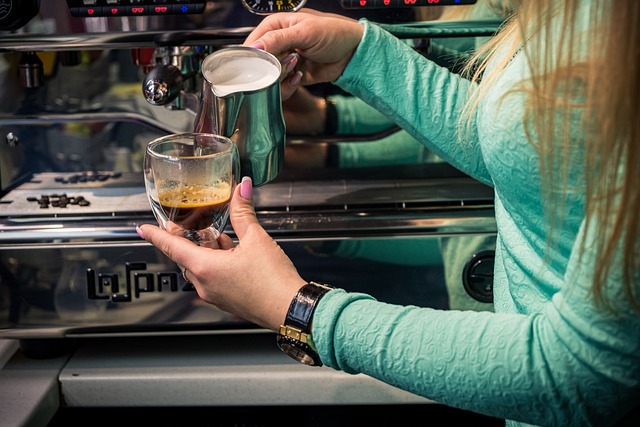Baristas are the skilled professionals who prepare and serve coffee and other beverages at coffee shops, cafés, and similar establishments.
- Baristas are skilled professionals who prepare and serve coffee and other beverages
- They are responsible for operating espresso machines, brewing coffee, frothing milk, and preparing a variety of drinks to order
- Customer service is also a key aspect of the job, including greeting customers, taking orders, and handling difficult or unhappy customers
- Baristas typically need to have a strong passion for coffee and a willingness to learn
- Formal training through a coffee school or apprenticeship program is helpful, but on-the-job experience is also a common way to become a barista
- Many coffee shops and cafés provide in-house training and ongoing education opportunities to help baristas stay up-to-date on the latest trends and techniques
Baristas are the skilled professionals who prepare and serve coffee and other beverages at coffee shops, cafés, and similar establishments. They are responsible for a wide range of tasks, including operating espresso machines, grinding and brewing coffee, frothing milk, and preparing a variety of drinks to order. In addition to their technical skills, baristas are also customer service professionals, and they play a crucial role in creating a positive and welcoming atmosphere for customers.
One of the most important tasks that baristas are responsible for is operating the espresso machine. This requires a high level of skill and precision, as the machine is capable of producing a wide range of drinks with varying degrees of complexity. Baristas must be able to accurately measure and grind the right amount of coffee beans, tamp them down into the machine’s portafilter, and pull a shot of espresso with a consistent and desirable crema (the thin layer of foam that forms on the surface of a properly brewed espresso).
In addition to preparing espresso-based drinks, baristas are also responsible for brewing coffee using a variety of methods, such as drip brewing, French press, and pour-over. They must be able to accurately measure the right amount of coffee and water, and adjust the grind size and brewing time to produce the desired flavor and strength.
Frothing milk is another important skill that baristas must master. This involves heating and aerating milk using a steam wand on the espresso machine, or using a separate frother, to create a creamy, velvety texture that is essential for drinks like lattes and cappuccinos. Baristas must be able to control the temperature and texture of the milk to produce the desired results, and must also be able to pour the milk into a cup or glass in a way that creates attractive designs on the surface of the drink.
Beyond their technical skills, baristas are also responsible for providing excellent customer service. This includes greeting customers as they enter the shop, taking orders and answering questions, and making recommendations based on the customer’s preferences. Baristas must also be able to handle difficult or unhappy customers in a professional and courteous manner, and should be able to multitask effectively in a fast-paced environment.
In order to become a barista, individuals typically need to have a strong passion for coffee and a willingness to learn. Some baristas have formal training through a coffee school or apprenticeship program, while others learn through on-the-job experience. Many coffee shops and cafés provide in-house training programs for new hires, and some even offer ongoing training and education opportunities to help baristas stay up-to-date on the latest trends and techniques in the industry.
In summary, baristas are skilled professionals who are responsible for preparing and serving a wide range of coffee and other beverages. They must have a strong understanding of espresso and coffee brewing techniques, as well as excellent customer service skills. With the right training and experience, individuals can turn their passion for coffee into a rewarding career as a barista.

